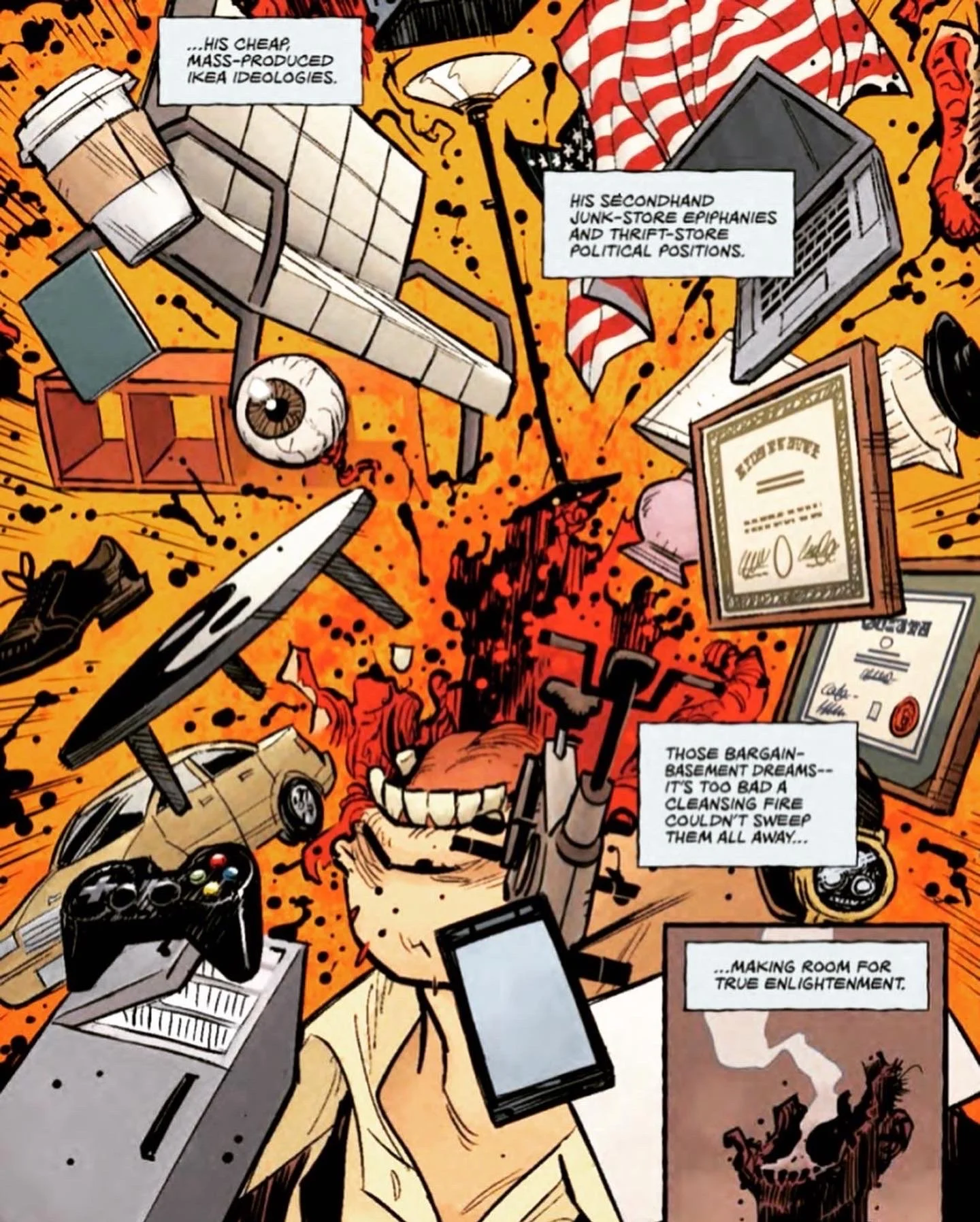Houston Southard
Chuck Palahniuk - Fight Club 2
The most important rule of Fight Club is fuck the rules and is why its first rule is never followed, because Fight Club is fist and foremost about anarchy. Fight Club 2, though, is less man-in-crisis and more closure to not controlling your own ideas. It's impossible to do these pieces justice. Luckily, justice has nothing to do with them.
Growing out of a 7-page short and denied publication several times, Fight Club is now heralded as our generation's Great Gatsby, a minimalist apostolic fictional retelling of stories like The Death of a Salesman and other literature thought to show us how the American dream is broken. But all it really shows is the dream is as anarchistic as America's making.
A quarter century later college classrooms still debate its intention as consumerist critique or ode to toxic masculinity. Like all scripture, though, Fight Club is a manifesto of many stories cobbled into a lone tome. Like all scripture, its audience misinterprets it with the beautiful irony that ideology is just what ideas make you feel. It's about self-destruction for its own sake, but it's not so simple, not when overlayed with the understanding that real dread lies in having everything you've been told you want and feeling empty all the same.
Fight Club 2 instead unpacks Fight Club's ethos, namely in that Tyler Durden was always more than the narrator's not-so-subconscious passenger, named Jack and later Sebastian and later Balthazar, an analogy that he is the everyman.
No, Tyler has been around since the dawn of time, plaguing his bloodline with vices to make sure he could trigger each generation's transgression to disaffect collective male malaise. Tyler introduced Sebastian's great grandfather to fire water, his grandfather to heroin, his father to sex clubs. Tyler is the world's first and only atomic artist.
In its final 4th-wall-breaking panel, Tyler walks a beach behind Chuck before blowing his brains out. The creation kills his creator who, in attempting to explain his message, is instead completely ignored. Chuck created something bigger than himself that he was but briefly in control of, because 'Ideas cultivate us. We're just along for the ride.’


